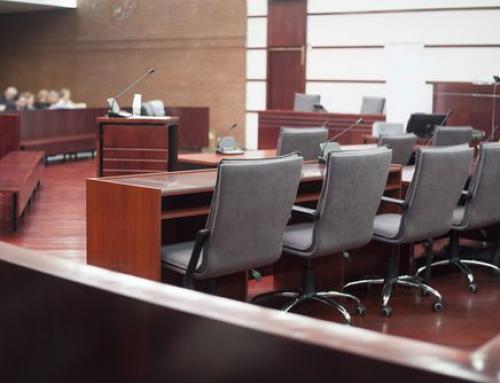What’s the difference between rape and sexual assault?
Brian M. Fishman was a prosecutor in Philadelphia for over four years and was assigned to the Family Violence and Sexual Assault Unit. Therefore, he is very familiar with these offense as he prosecuted many of them. Sex offenses are some of the most serious criminal offenses due to their far-reaching consequences. In addition, to a long jail sentence, you face Megan’s Law registration requirements, including community notification and listing on public websites, the inability to obtain employment, potential restrictions on where you live and being ostracized from society. Nobody wants to have the label of being a sex offender or sexual predator.
Although rape tends to have a far worse connotation in our society, there is not a big difference in the statutory language between rape and sexual assault in Pennsylvania. The difference essential comes down to force. Rape requires force whereas sexual assault does not. Rape is defined as sexual intercourse with another by forcible compulsion or the threat of forcible compulsion. Additionally, it is considered rape if you have sexual intercourse with someone who is unconscious, who suffers from a mental disability which makes them unable to consent or if you provide them with drugs or alcohol to the point where they cannot consent. This last section is generally referred to as “date rape”. Rape is a felony of the first-degree and punishable by up to 20 years in jail.
On the other hand, sexual assault is having sexual intercourse with another without their consent. There does not have to be any force involved. You can think of sexual assault as the “no means no” version of rape. If the complainant does not want to have sex and expresses that to you and you continue by engaging in sexual intercourse, that is sexual assault. Sexual assault is graded as a felony of the second-degree and is punishable by up to 10 years of incarceration.
If charged with rape, you are always charged with sexual assault as it is a lesser-included offense. However, you can be charged with sexual assault and theoretically not be charged with rape. Although the maximum penalties differ greatly, both require an evaluation to determine whether you are deemed a Sexually Violent Predator and require lifetime registration under Megan’s Law.
If you are being investigated for a sex offense or have been arrested for rape, sexual assault or any related offenses such as involuntary deviate sexual intercourse, aggravated indecent assault, unlawful restraint, false imprisonment, aggravated assault, simple assault or recklessly endangering another person, do not speak to law enforcement and immediately contact Philadelphia sex assault attorney Brian M. Fishman for a free consultation.
What do I do if the police come to my house with a search warrant looking for child pornography on my computer or other electronic devices?
This is clearly an embarrassing moment and one you undoubtedly want to get out of as quickly as possible. Therefore, your natural instinct is to be as cooperative as possible and tell the police everything they want to hear. First, resist that urge and do not talk. If they have a warrant, they are allowed to search the location permitted by the warrant. You do not want to give them additional evidence by admitting to having downloaded or shared child pornography on the internet. Second, if the police allow, you should take a look at the search warrant to make sure that it allows them to search the location they are about to search or confiscate the items they are taking, such as a computer or external hard drive.
If police are being uncooperative and not allowing you to see the warrant, do not panic and do not get aggressive or verbally abusive. You do not want this encounter to lead to additional charges such as assault against an officer, resisting arrest or terroristic threats. You likely will not be arrested on the scene because police will need to take your computer to a lab to be analyzed. Therefore, you should immediately contact a local criminal defense attorney to discuss your rights and how to proceed.
It is possible that the affidavit of probable cause attached to the search warrant did not include sufficient probable cause to search your residence. If that is the case, Brian M. Fishman will file a motion to suppress the search and argue that anything found by police on your computer as a result of the illegal search must be suppressed and not introduced at trial. If successful, the prosecution will have no case as this is a possessory offense and they cannot prove possession of child pornography if they are unable to introduce the pornography. Possession of child pornography is a serious crime that has similar ramifications as other sex offenses including incarceration and registration with the Pennsylvania State Police as a sex offender under Megan’s Law. Therefore, it is important that you immediately contact a Philadelphia sex offense attorney if you believe you are being investigated for or have been arrested for possession of child pornography.




